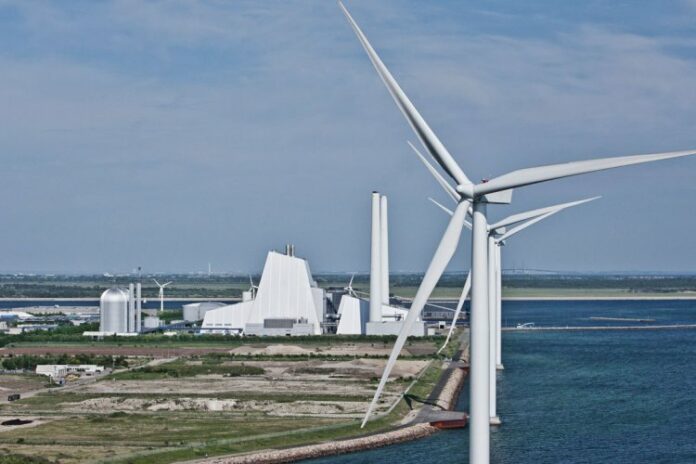In a landmark deal, Ørsted will sell a further one million tonnes of carbon removal over a ten-year period to Microsoft from Avedøre Power Station, which is part of the bioenergy carbon capture and storage (BECCS) project ‘Ørsted Kalundborg CO2 Hub’.
This new agreement builds on an existing commitment by Microsoft to buy 2.67 million tonnes from Asnæs Power Station, bringing the total purchase under contract to 3.67 million tonnes of CO2.
As part of the ‘Ørsted Kalundborg CO2 Hub’, Ørsted will establish carbon capture at its wood chip-fired Asnæs Power Station in Kalundborg in western Zealand and at the Avedøre Power Station’s straw-fired boiler in the Greater Copenhagen area. The 430,000 tonnes per year of biogenic CO2 from the combined heat and power plants will be shipped to a storage reservoir in the Norwegian part of the North Sea and stored permanently. The ‘Ørsted Kalundborg CO2 Hub’ is set to become operational by the beginning of 2026.
The new agreement between Ørsted and Microsoft entails that Microsoft will take one million tonnes of carbon removal from the straw-fired unit at Avedøre Power Station starting from 2026. The combined heat and power plant converts locally sourced straw, which is a by-product of agriculture, into electricity and district heating. By capturing the biogenic carbon from biomass-fired combined heat and power plants and storing it underground, it is possible to not only reduce, but also remove CO2 from the atmosphere, as biogenic carbon from sustainable biomass is part of a natural biogenic carbon cycle. Thereby, you create negative emissions.
The collaboration between Ørsted and Microsoft will play a vital role in developing the ‘Ørsted Kalundborg CO2 Hub’, as bioenergy-based carbon capture and storage is still in its early stages. Even though the project was awarded a subsidy from the Danish Energy Agency, the revenue from the sale of carbon removal certificates was included before investment decision and then in the offer submitted through the Danish subsidy scheme, which put great emphasis on competitive offers with the lowest amount of subsidy per tonne.
According to the UN’s Intergovernmental Panel on Climate Change’s (IPCC) latest report, carbon removal technologies such as BECCS are crucial for limiting global warming. This underscores the importance of projects such as the ‘Ørsted Kalundborg CO2 Hub’, which can support companies like Microsoft in achieving its sustainability goals and contribute to achieving the global climate targets.
Ole Thomsen, Senior Vice President and Head of Ørsted’s Bioenergy business, says:
“This expanded collaboration with Microsoft is a testament to our shared vision for a sustainable future. By combining Ørsted’s expertise in bioenergy carbon capture and storage with Microsoft’s commitment to reducing its carbon footprint, we’re showcasing how strategic relations can accelerate the transition to a greener economy.”
Brian Marrs, Senior Director of Energy & Carbon Removals at Microsoft, says:
“The urgency around climate goals means translating great planning into rapid action – and Ørsted remains a valuable collaborator in bringing big ideas to life. Today’s announcement is yet another tangible step towards building the technologies and commercial capabilities towards becoming carbon-negative by 2030.”



